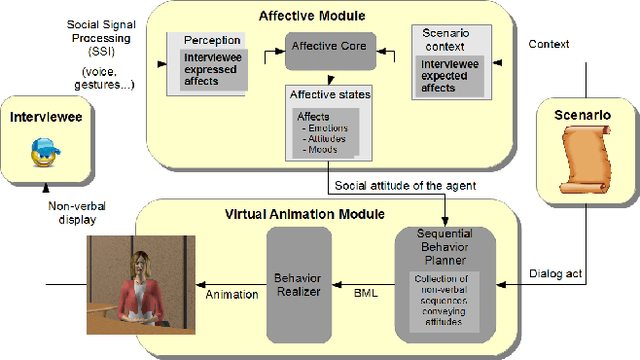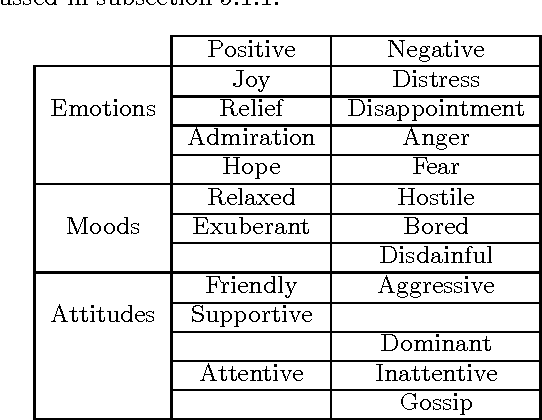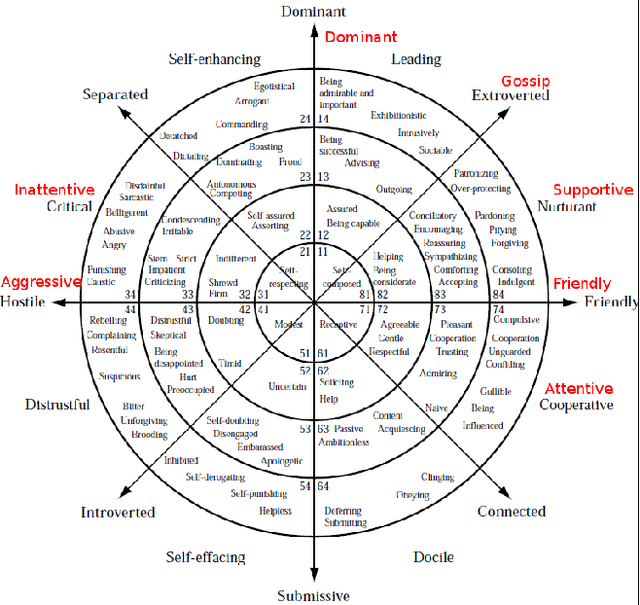Expressing social attitudes in virtual agents for social training games
Paper and Code
Feb 20, 2014



The use of virtual agents in social coaching has increased rapidly in the last decade. In order to train the user in different situations than can occur in real life, the virtual agent should be able to express different social attitudes. In this paper, we propose a model of social attitudes that enables a virtual agent to reason on the appropriate social attitude to express during the interaction with a user given the course of the interaction, but also the emotions, mood and personality of the agent. Moreover, the model enables the virtual agent to display its social attitude through its non-verbal behaviour. The proposed model has been developed in the context of job interview simulation. The methodology used to develop such a model combined a theoretical and an empirical approach. Indeed, the model is based both on the literature in Human and Social Sciences on social attitudes but also on the analysis of an audiovisual corpus of job interviews and on post-hoc interviews with the recruiters on their expressed attitudes during the job interview.
 Add to Chrome
Add to Chrome Add to Firefox
Add to Firefox Add to Edge
Add to Edge